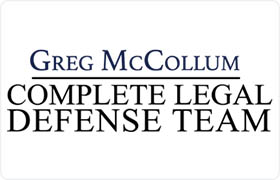 Ravenel Felony Lawyers, South Carolina
Ravenel Felony Lawyers, South Carolina
Sponsored Law Firm
-
 x
x

Click For More Info:
-
Greg McCollum Complete Legal Defense Team
1012 38th Avenue North Suite 202 Myrtle Beach, SC 29577» view mapCriminal Defence Law Complete Legal Defense Team
Our goal at the Complete Legal Defense Team is to examine the facts and circumstances completely and help our clients.
800-634-0690
Not enough matches for Ravenel Felony lawyer.
Below are all Ravenel Criminal lawyers.
Sponsored Lawyers
1-1 of 1 matches
Accident & Injury, Criminal, Traffic, Nursing Home, Elder Law
Nicholas Clekis focuses his practice in the areas of Personal Injury, Workmens’ Compensation, Medical Malpractice, Litigation, Criminal Defense and Family Law. Founding partner, Nicholas J. Clekis received his B.S. from the College of Charleston in 1982 and his J.D. from the University of South Carolina School of Law in 1985. After working with such firms as Morris, Duffy & Boone (formerly known as Hollings, Hawkins &Morris and now known as the McNair Law Firm, PA) and Grimball & Cabaniss, LLC, Mr. Clekis decided to set out on his own, concentrating on personal injury, criminal, and family law.
(more)


 Greg McCollum Myrtle Beach, SC
Greg McCollum Myrtle Beach, SC AboutGreg McCollum Complete Legal Defense Team
AboutGreg McCollum Complete Legal Defense Team Practice AreasExpertise
Practice AreasExpertise

